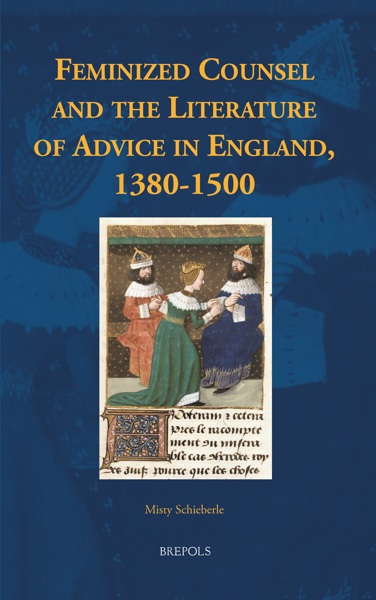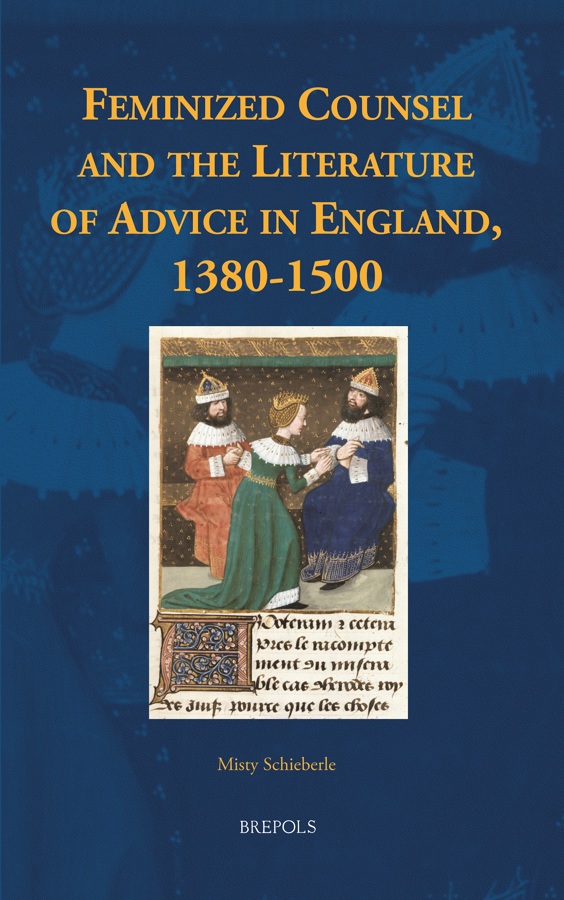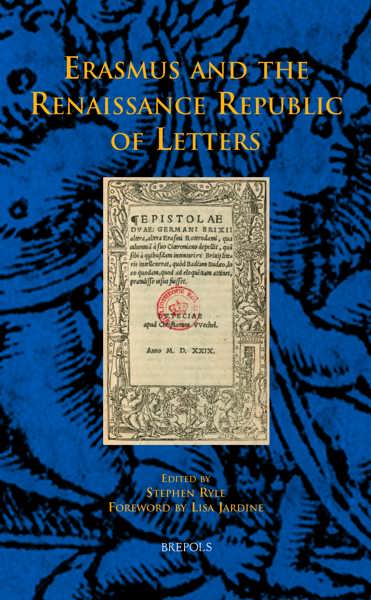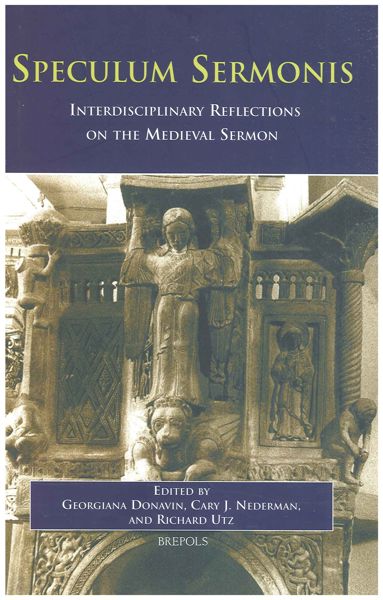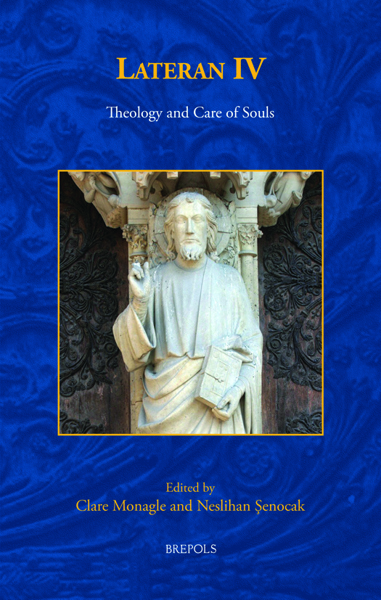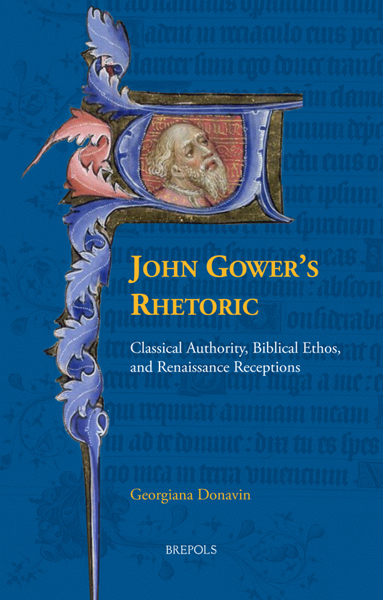
Feminized Counsel and the Literature of Advice in England, 1380-1500
Misty Schieberle
- Pages: 224 p.
- Size:156 x 234 mm
- Language(s):English, Old French, Latin
- Publication Year:2014
- € 90,00 EXCL. VAT RETAIL PRICE
- ISBN: 978-2-503-55012-1
- Hardback
- Available
- € 90,00 EXCL. VAT RETAIL PRICE
- ISBN: 978-2-503-55821-9
- E-book
- Available
This volume argues that the woman counselor enabled poets to articulate challenging political counsel from a subordinate yet authoritative position, and to elevate the status of both women and vernacular political discourses.
"Overall, Schieberle makes a compelling argument for the role of femininity in establishing authority, and the ways that female counsellors could advise for the betterment of individual and realm. (...) Comparison is facilitated by the use of original text accompanied by translations, an editorial decision which also widens accessibility of the book across disciplines. I would recommend this book to those interested in women’s and gender studies, cultural studies, medieval literature, and medieval history." (Sally Fisher, in: Parergon, 32.1, 2015, p. 274-276)
"The author (...) deserves praise for her many careful readings and thought-provoking insights, especially in the final chapter. The grouping of these four works through the notion of the feminization of counsel proves to be a salutary contribution to the discussion of gendered performance by Middle English poets." (Christine M. Rose, in: The Medieval Review, 15.09.28)
“Misty Schieberle’s insightful and carefully argued book sheds light on an underappreciated figure in medieval vernacular literature: the wise female counselor (…) This flexible model of gender and performance may be the book’s greatest contribution to scholarly conversations about Middle English Literature.” (Amanda Walling, in the Journal of English and Germanic Philology, 115/4, 2016, p. 508-510)
The term ‘feminized counsel’ denotes the advice associated with and spoken by women characters. This book demonstrates that rather than classify women’s voices as an opposite against which to define masculine authority, late medieval vernacular poets embraced the feminine as a representation of their subordination to kings, patrons, and authorities. The works studied include Gower’s Confessio Amantis, Chaucer’s Legend of Good Women and Melibee, and English translations of Christine de Pizan’s Epistre Othea. To advise readers, these texts draw on the politicized genre of mirrors for princes. Whereas Latin mirrors such as the Secretum secretorum and Giles of Rome’s De regimine principum represented women as inferior, weak, and detrimental to masculine authority, these vernacular texts break traditional expectations and portray women as essential and authoritative political counsellors.
By considering Latin and French sources, historical models of queens’ intercessions, and literary models of authoritative female personifications, this study explores the woman counsellor as a literary topos that enabled poets to criticize, advise, and influence powerful readers. Feminized Counsel elucidates the manner in which vernacular poets concerned with issues of counsel, mercy, and power identified with fictional women’s struggles to develop authority in the political sphere. These women counsellors become enabling models that paradoxically generate authority for poets who also lack access to traditionally recognized forms of intellectual or literary authority.
Introduction
Chapter 1. Women, Counsel, and Marriage Metaphors in John Gower’s Confessio Amantis
Chapter 2. ‘Lerne this at me!’ Alceste as a Model for the Poet in the Legend of Good Women
Chapter 3. Exemplarity and Chaucer’s Melibee: Contextualizing Prudence’s Authority
Chapter 4. Male Translators’ Identification with Women: The Epistre Othea in Middle English
Conclusion
Bibliography
Index
